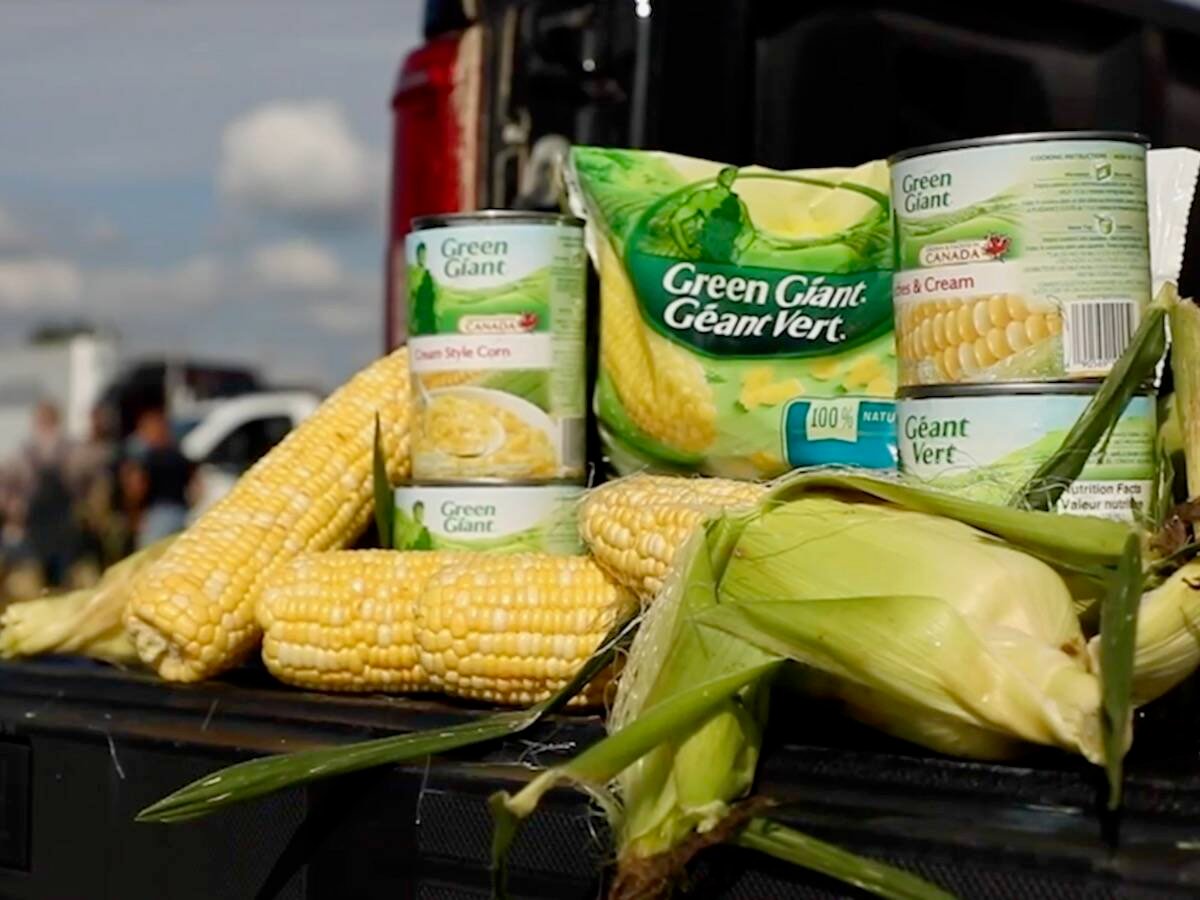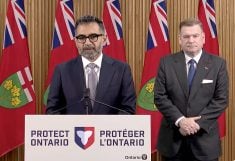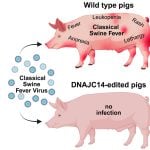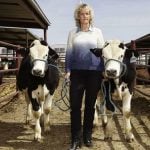Farmtario editor John Greig recently talked to Canada’s Minister of Agriculture and Agri-Food Lawrence MacAulay about trade, reaching ambitious export goals and Canadian’s agriculture rising prominence as an engine of economic growth.
JG – Agriculture is having a ‘moment’ in the sun, especially with government. Why is that happening now?
LM – Of course as the minister I have to thank Dominic Barton, but the government brought him on. The government is fully aware that agriculture is going to be a major player in increasing our GDP. That’s what’s so important. Agriculture has and will always will be the backbone of our economy. It couldn’t be a better time. We’re going to export $75 billion worth of agriculture and agri-food products by 2025. As you’re fully aware, there’s been investment in the agriculture sector to bring us there. It’s an exciting time to be a farmer and Minister of Agriculture and Agri Food in this country. It’s interesting.
Read Also

Packer buys Green Giant, Le Sieur veg brands from U.S. owner
A Quebec-based processor’s deal to buy the Green Giant and Le Sieur packaged and frozen vegetable brands in Canada from a U.S. owner clarifies the status of two popular retail brands grown by Canadian farmers.
The Canadian Agricultural Partnership (CAP), that’s going to put $400 million into Ontario agricultural sector investment between the federal and provincial government, a 60-40 share. Then there’s another billion dollars, federally only that will emphasize trade, innovation, public trust, safe food.
We have the best farmers and ranchers in the world. And I say that, but I don’t say lightly, but we do have, we do have the best farmers and ranchers in the world. When you travel the world, you find that out because we have great respect worldwide for the quality of our food.
JG – I was at a panel discussion recently on reaching that export goal and one of the concerns from food processors was that overregulation is hampering their ability to compete against the rest of the world. What’s AAFC’s role in managing the regulatory burden for farmers and processors?
LM – On that alone we have formed within the department an international affairs branch that will help co-ordinate CFIA and Agriculture and Agri-Food. Of course there are always little problems and sometimes bigger problems. I’ve been a farmer. I’ve had difficulties with CFIA or what it was named at the time. But when I got into any problems I found out how important it was to have a science-based regulatory system behind me and I found that out personally in the court room.
A science-based regulatory system is a major asset. All you have to go to Asia or wherever really we sell food, and safe food is so important.
You indicated that there are some problems. There is nothing without some problems. What we’re going to give is a single window-type thing with CFIA and agriculture and agri-food Canada. That’s what we’re trying to do.
JG – Many of the government effects on farmers come from outside of your department. CFIA, Health Canada and pesticides, transportation, for example. How as the minister of agriculture and agri-food do you communicate across ministries?
LM – With a lot of discussion. It’s a big cabinet team here and it’s one team and that’s how the thing works. The Prime Minister, it’s safe to say, leads by example and he listens to what we have to say and I can assure you on that issue I’m in regular contact with my colleagues.
But as you know, on the CFIA and the certification of products and that sort of thing, it can cause an irritant, but it’s a science-based system and which is vitally important. The environment comes into play too.
JG – I know you’ve spent a lot of time on trade in the past year or so. With American tariffs on Chinese goods and Chinese tariffs on American goods, do you see any effect on our markets if those come into effect.
LM – We’re monitoring the developments between the U.S. and China. It’s important to note that we are a trading nation and we’re wide open to countries around the world. We have demonstrated that. We have signed trade deals and will continue to do so. We cannot control what other countries do. Our job is to make sure we help farmers have access to opportunities worldwide and that’s exactly what we are doing, with the United States and other countries around the world.
JG – Any concerns about American beans or pork coming into this market that might have gone to China?
LM – We monitor the situation and it’s hard to answer a question on what might happen. We’re an open market and that goes both ways and farmers understand that.
JG – There’s been some musing of the U.S. rejoining the CPTPP. Do you have any thoughts on how that might work?
LM – Well of course things change daily and of course we’re concentrating on the deal we signed, the CPTPP, which is very important to Canada and our agriculture sector, open markets in Canada and around the world. That’s what we’re concentrating on.
We’re continuing trade missions. In a few weeks I go to China. I’ve been in Japan and Korea and we continue to work with our farmers and ranchers to make sure we have the opportunity to fill the requirements that are opening each year. The middle class of China, for example is expanding by our own country’s population every year. You’ve got other large countries, a lot of countries. Opportunities are big. That’s why we have to be there, be innovative here, be conscious of our environment and we’re doing all that plus many, many other things.
This interview has been edited for length.













